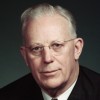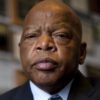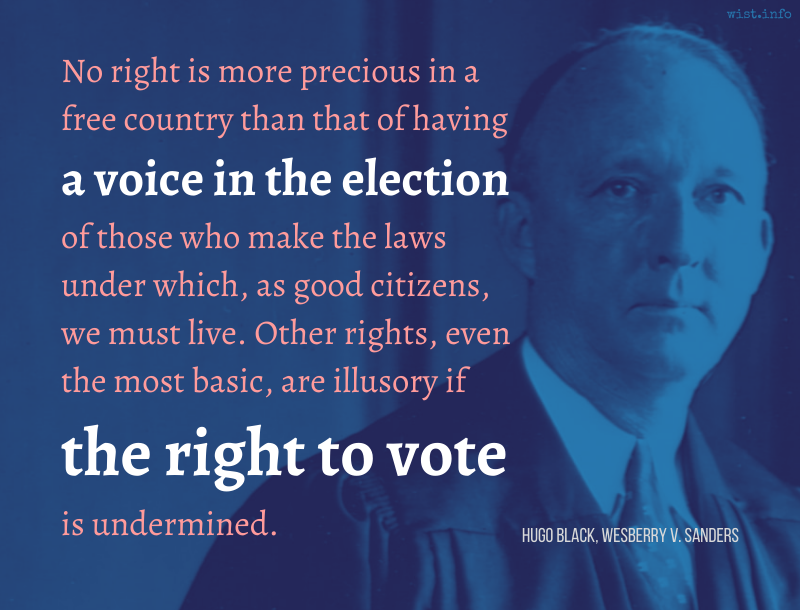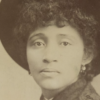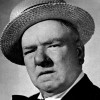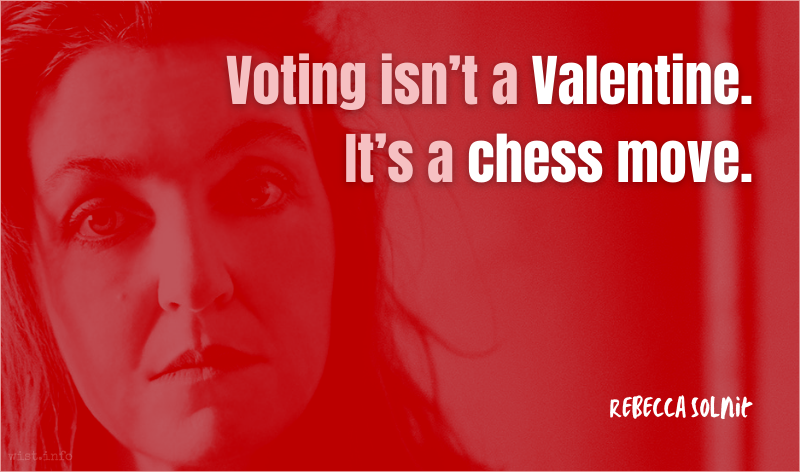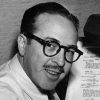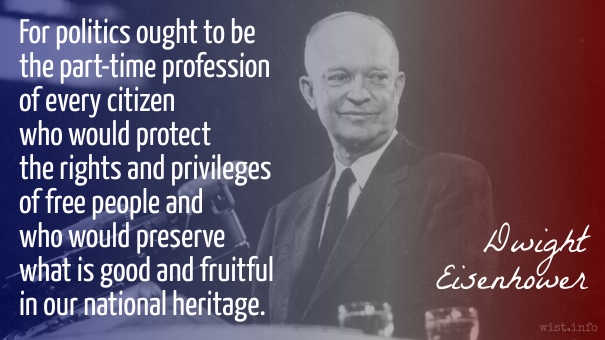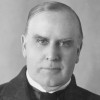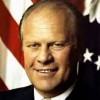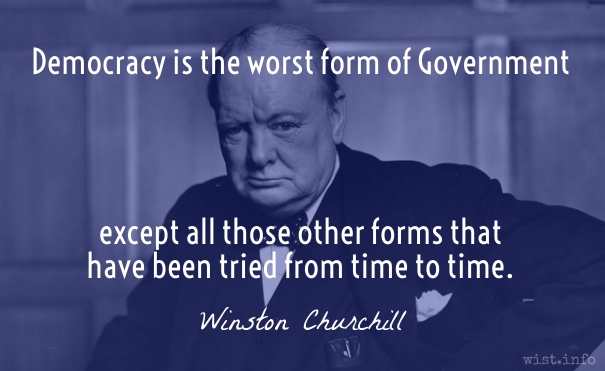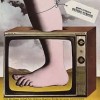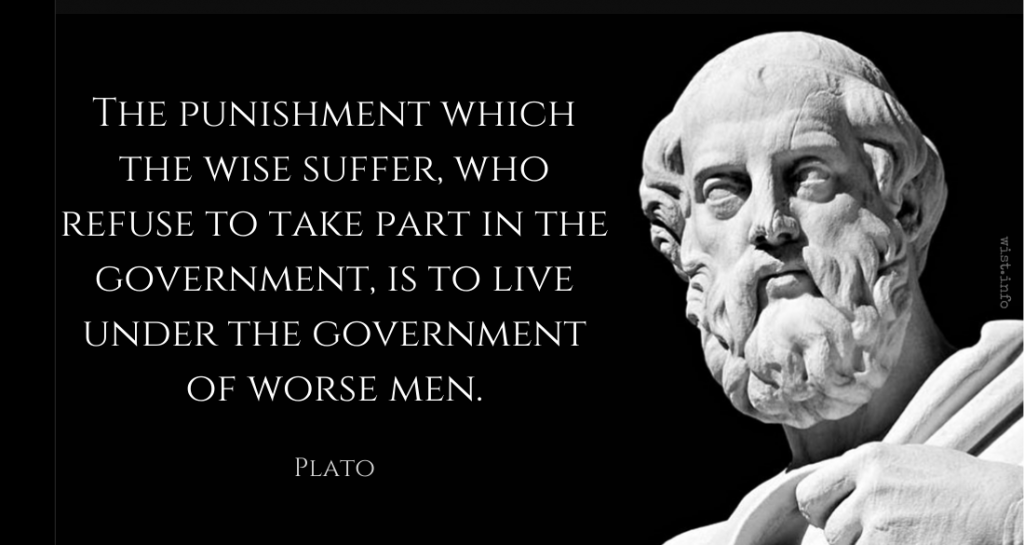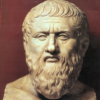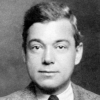If all public questions were settled by shooting dice, fifty percent of them would be settled correctly. This would be five times as good a score as we make now.
H. L. Mencken (1880-1956) American writer and journalist [Henry Lewis Mencken]
A Little Book in C Major, ch. 3, § 19 (1916)
(Source)
Quotations about:
voting
Note not all quotations have been tagged, so Search may find additional quotes on this topic.
Well, you know how Congress is. They’ll vote for anything if the thing they vote for will turn around and vote for them.
In this country, people don’t vote for, they vote against.
Undoubtedly, the right of suffrage is a fundamental in a free and democratic society. Especially since the right to exercise the franchise in a free and unimpaired manner is preservative of other basic civil and political rights, any alleged infringement of the right of citizens to vote must be carefully and meticulously scrutinized.
Earl Warren (1891-1974) American jurist and politician; Chief Justice of the Supreme Court (1953-69)
Reynolds v. Sims, 377 U.S. 533, 561-562 (1964) [majority opinion]
(Source)
People keep telling me they are frustrated and ask, “What can I do?” I say organize, get registered, and vote like you’ve never voted before.
John Lewis (1940-2020) American politician and civil rights leader
Twitter (15 Mar 2016)
(Source)
Lewis used the phrase multiple times in his career.
The right of voting for representatives is the primary right by which other rights are protected. To take away this right is to reduce a man to slavery, for slavery consists in being subject to the will of another, and he that has not a vote in the election of representatives is in this case.
Thomas Paine (1737-1809) American political philosopher and writer
“Dissertation on First-Principles of Government” (1795)
(Source)
The biggest threat to our democracy is indifference. The biggest threat to our democracy is cynicism — a cynicism that’s led too many people to turn away from politics and stay home on election day. […] So if you don’t like what’s going on right now — and you shouldn’t — do not complain. Don’t hashtag. Don’t get anxious. Don’t retreat. Don’t binge on whatever it is you’re bingeing on. Don’t lose yourself in ironic detachment. Don’t put your head in the sand. Don’t boo. Vote. You’ve got to vote.
Barack Obama (b. 1961) American politician, US President (2009-2017)
Speech, University of Illinois (7 Sep 2018)
(Source)
If you are bored and disgusted by politics and don’t bother to vote, you are in effect voting for the entrenched Establishments of the two major parties, who please rest assured are not dumb, and who are keenly aware that it is in their interests to keep you disgusted and bored and cynical and to give you every possible psychological reason to stay at home doing one-hitters and watching MTV on primary day. By all means stay home if you want, but don’t bullshit yourself that you’re not voting. In reality, there is no such thing as not voting: you either vote by voting, or you vote by staying home and tacitly doubling the value of some Diehard’s vote.
No right is more precious in a free country than that of having a voice in the election of those who make the laws under which, as good citizens, we must live. Other rights, even the most basic, are illusory if the right to vote is undermined. Our Constitution leaves no room for classification of people in a way that unnecessarily abridges this right.
Hugo Black (1886-1971) American politician and jurist, US Supreme Court Justice (1937-71)
Wesberry v. Sanders, 376 U.S. 1, 17-18 (1964) [majority opinion]
(Source)
The ruling held that congressional districts must have roughly equal populations if possible, such that "one man's vote in a congressional election is to be worth as much as another's."
Never be deceived that the rich will allow you to vote away their wealth.
Lucy Parsons (1851-1942) American labor organizer, anarchist, orator [a.k.a. Lucy Gonzalez]
Speech, Founding Convention of the Industrial Workers of the World (27 Jun 1905)
(Source)
Reprinted in Freedom, Equality and Solidarity: Writings & Speeches, 1878-1937.
“It comes from a very ancient democracy, you see ….”
“You mean, it comes from a world of lizards?”
“No,” said Ford, who by this time was a little more rational and coherent than he had been, having finally had the coffee forced down him, “nothing so simple. Nothing anything like so straightforward. On its world, the people are people. The leaders are lizards. The people hate the lizards and the lizards rule the people.”
“Odd,” said Arthur, “I thought you said it was a democracy.”
“I did,” said Ford. “It is.”
“So,” said Arthur, hoping he wasn’t sounding ridiculously obtuse, “why don’t the people get rid of the lizards?”
“It honestly doesn’t occur to them,” said Ford. “They’ve all got the vote, so they all pretty much assume that the government they’ve voted in more or less approximates to the government they want.”
“You mean they actually vote for the lizards?”
“Oh yes,” said Ford with a shrug, “of course.”
“But,” said Arthur, going for the big one again, “why?”
“Because if they didn’t vote for a lizard,” said Ford, “the wrong lizard might get in.”
Douglas Adams (1952-2001) English writer
So Long, And Thanks For All The Fish, ch. 36 (1984)
(Source)
Hell, I never vote for anybody. I always vote against.
W. C. Fields (1880-1946) American entertainer [b. William Claude Dukenfield]
Comment to Gene Fowler
(Source)
Quoted in Robert Lewis Taylor, W. C. Fields, ch. 25 (1949). See also Adams.
More discussion about the origins of this quotation: I Never Vote For Anybody. I Always Vote Against – Quote Investigator.
If you aren’t at the table, you’re on the menu.
Ann Richards (1933-2006) American politician [Dorothy Ann Willis Richards]
(Attributed)
Richards regularly used the phrase, but it's unclear if she originated it. See here for more discussion.
Another point of disagreement is not factual but involves the ethical/moral principle […] sometimes referred to as the “politics of moral witness.” Generally associated with the religious left, secular leftists implicitly invoke it when they reject LEV on the grounds that “a lesser of two evils is still evil.” Leaving aside the obvious rejoinder that this is exactly the point of lesser evil voting — i.e. to do less evil, what needs to be challenged is the assumption that voting should be seen a form of individual self-expression rather than as an act to be judged on its likely consequences. […] The basic moral principle at stake is simple: not only must we take responsibility for our actions, but the consequences of our actions for others are a far more important consideration than feeling good about ourselves.
Noam Chomsky (b. 1928) American linguist and activist
“An Eight Point Brief for LEV (Lesser Evil Voting)” (15 Jun 2016) [with John Halle]
(Source)
Political strategies and tactics are not jealous lovers. You don’t have to be monogamous. Direct Action will not feel betrayed if you also vote from time to time — you can be poly in your tactics. And I am. Of course I vote! If you’re a woman, or a person of color, or a person who doesn’t own property, or even a white male who doesn’t belong to the nobility, centuries of struggle and many deaths have bought you the right to vote. I vote to keep faith with peasant rebels and suffragist hunger strikers and civil rights workers braving the lynch mobs of the South, if for no other reason. But there is another reason — because who we vote for has an enormous impact on real peoples’ lives.
Starhawk (b. 1951) American writer, activist, feminist theologian [b. Miriam Simos]
“Pre-Election Day Thoughts,” blog post (7 Nov 2016)
(Source)
Build movements. Vote with your values, but vote strategically. Voting isn’t a Valentine. It’s a chess move.
Rebecca Solnit (b. 1961) American writer, historian, activist
Facebook (17 Oct 2016)
(Source)
Solnit is credited with the core message of the last two sentences. She indicates (including from that Facebook post) that it was something she had said that was extracted and perhaps tweaked by May Boeve. E.g., "That 2016 aphorism that I sort of said and May Boeve made into this stand-alone slogan." (1 Nov 2018) "I said that off the cuff in 2016 and May Boeve caught it and it went on to have a nice life. It's also not the only chess move you get." (11 Aug 2020).
Variants:
- "Voting is a chess move, not a valentine. And here's the joy of being politically engaged all year round every year; you get to work with a whole lot of chess pieces and players and strategies and long-term visions, so you don't agonize over whether this little hop with a pawn we call voting defines you. You get to define yourself by what you're passionately committed to, by who you align with, by your dreams and your visions, you get to move a lot of pieces a lot of times, you get heroic allies, and you play to win above, beyond, around elections. But you vote, because you know it matters too." (7 Nov 2016)
- "I think of voting as a chess move, not a valentine. It’s just a little part of the picture of how we make the world." ("The 2000 Election Unleashed Disaster on the World. We Can’t Let that Happen Again in 2016," The Nation (3 Nov 2016))
- "A vote is not a valentine. You are not confessing your love for the candidate. It's a chess move for the world you want to live in."
- "Voting isn't a valentine, it's a chess move. Just one of many with one of your many pieces, if you're using what you've been given."
Let us not commit ourselves to the absurd and senseless dogma that the color of the skin shall be the basis of suffrage, the talisman of liberty.
James A. Garfield (1831-1881) US President (1881), lawyer, lay preacher, educator
“Suffrage and Safety,” speech, Ravenna, Ohio (4 Jul 1865)
(Source)
The people — the people — are the rightful masters of both Congresses, and courts — not to overthrow the Constitution, but to overthrow the men who pervert it.
Abraham Lincoln (1809-1865) American lawyer, politician, US President (1861-65)
Speech, Cooper Union, New York City (27 Feb 1860)
(Source)
On preventing the spread of slavery to new states and territories. Sometimes paraphrased, "We the people are the rightful masters of both Congress and the Courts, not to overthrow the Constitution but to overthrow the men who would pervert the Constitution."
Democracy means that people can say what they want to. All the people. It means that they can vote as they wish. All the people. It means that they can worship God in any way they feel right, and that includes Christians and Jews and voodoo doctors as well.
Dalton Trumbo (1905-1976) American screenwriter and novelist [James Dalton Trumbo]
The Remarkable Andrew (1942)
Based on Trumbo's 1941 book of the same name. Parallel text.
Elections are won by men and women chiefly because most people vote against somebody rather than for somebody.
Franklin Pierce Adams (1881-1960) American journalist and humorist
Nods and Becks (1944)
Adams earlier used a similar phrase (not claiming attribution) in his "Conning Tower" column (13 Nov 1916): "Voters went to the polls, as had been observed frequently, with the intention to vote against Somebody rather than for Somebody." See also Fields.
More discussion about the origins of this quotation: I Never Vote For Anybody. I Always Vote Against – Quote Investigator.
For politics ought to be the part-time profession of every citizen who would protect the rights and privileges of free people and who would preserve what is good and fruitful in our national heritage. Politics must be the concern of every citizen who wants to see our national well-being increased and our international leadership strengthened. In that combined sense, politics is the noblest of professions. In the ranks of that kind of politics, every American should be enrolled.
Dwight David Eisenhower (1890-1969) American general, US President (1953-61)
Speech, Republican Lincoln Day Dinners (28 Jan 1954)
(Source)
Often paraphrased: "Politics ought to be the part-time profession of every citizen who would protect the rights and privileges of free men."
The speech was filmed for the Republican National Committee and distributed to state and local committees to be shown at the Lincoln Day dinners.
PRESIDENT, n. The leading figure in a small group of men of whom — and of whom only — it is positively known that immense numbers of their countrymen did not want any of them for President.
Ambrose Bierce (1842-1914?) American writer and journalist
“President,” The Devil’s Dictionary (1911)
(Source)
Originally published in the "Cynic's Word Book" column in the New York American (1906-06-14).
But freedom isn’t free. It shouldn’t be a bragging point that, “Oh, I don’t get involved in politics,” as if that makes someone cleaner. No, that makes you derelict of duty in a republic. Liars and panderers in government would have a much harder time of it if so many people didn’t insist on their right to remain ignorant and blindly agreeable.
Every honest and God-fearing man is a mighty factor in the future of the Republic. Educated men, business men, professional men, should be the last to shirk the responsibilities attaching to citizenship in a free government. They should be practical and helpful — mingling with the people — not selfish and exclusive. It is not necessary that every man should enter into politics, or adopt it as a profession, or seek political preferment, but it is the duty of every man to give personal attention to his political duties. They are as sacred and binding as any we have to perform.
William McKinley (1843-1901) US President (1897-1901)
Speech, Woodstock, Connecticut (4 July 1891)
(Source)
Peace does not appear so distant as it did. I hope it will come soon, and come to stay; and so come as to be worth the keeping in all future time. It will then have been proved that, among free men, there can be no successful appeal from the ballot to the bullet; and that they who take such appeal are sure to lose their case, and pay the cost.
For in a democracy, every citizen, regardless of his interest in politics, “holds office”; every one of us is in a position of responsibility; and, in the final analysis, the kind of government we get depends upon how we fulfill those responsibilities. We, the people, are the boss, and we will get the kind of political leadership, be it good or bad, that we demand and deserve.
If there is distrust out there — and there is — perhaps it is because there is so much partisan jockeying for advantage at the expense of public policy. At times it feels as if American politics consists largely of candidates without ideas, hiring consultants without convictions, to stage campaigns without content. Increasingly the result is elections without voters.
Gerald R. Ford (1913-2006) American politician, US President (1974-77) [b. Leslie Lynch King, Jr.]
Speech, Profiles in Courage Award Acceptance, John F. Kennedy Presidential Library (2001)
(Source)
The death of democracy is not likely to be an assassination from ambush. It will be a slow extinction from apathy, indifference, and undernourishment.
Robert M. Hutchins (1899-1977) American educator and educational philosopher
Great Books: The Foundation of a Liberal Education (1954)
(Source)
This is a column for everyone who ever said, “I’m sorry, I’m just not interested in politics,” or, “There’s nothing I can do about it,” or, “Hey, they’re all crooks anyway.” … I’ve got one word for all of you: Katrina. … This, friends, is why we need to pay attention to government policies, not political personalities, and to know whereon we vote. It is about our lives.
When people put their ballots in the boxes, they are, by that act, inoculated against the feeling that the government is not theirs. They then accept, in some measure, that its errors are their errors, its aberrations their aberrations, that any revolt will be against them. It’s a remarkably shrewd and rather conservative arrangement when one thinks of it.
John Kenneth Galbraith (1908-2006) Canadian-American economist, diplomat, author
The Age of Uncertainty, ch. 12 (1977)
(Source)
Many forms of Government have been tried, and will be tried in this world of sin and woe. No one pretends that democracy is perfect or all-wise. Indeed, it has been said that democracy is the worst form of Government except all those other forms that have been tried from time to time.
KING ARTHUR: I am your king.
WOMAN: Well, I didn’t vote for you.
KING ARTHUR: You don’t vote for kings.
WOMAN: Well how’d you become king then?
KING ARTHUR: [angelic music plays] The Lady of the Lake, her arm clad in the purest shimmering samite, held aloft Excalibur from the bosom of the water, signifying by divine providence that I, Arthur, was to carry Excalibur. That is why I am your king.
DENNIS: [interrupting] Listen, strange women lying in ponds distributing swords is no basis for a system of government. Supreme executive power derives from a mandate from the masses, not from some farcical aquatic ceremony.
CALVIN: When I grow up, I’m not going to read the newspaper and I’m not going to follow complex issues and I’m not going to vote. That way I can complain when the government doesn’t represent me. Then, when everything goes down the tubes, I can say the system doesn’t work and justify my further lack of participation.
HOBBES: An ingeniously self-fulfilling plan.
CALVIN: It’s a lot more fun to blame things than to fix them.
The punishment which the wise suffer who refuse to take part in the government is to live under the government of worse men.
Plato (c.428-347 BC) Greek philosopher
Republic, Book 1, 347c
In Ralph Waldo Emerson, "Eloquence," Society and Solitude (1870).
Alt. trans.:More discussion here.
- "One of the penalties for refusing to participate in politics, is that you end up being governed by your inferiors."
- The Constitution Party (1952-68) used on their letterhead the variant, "The penalty good men pay for indifference to public affairs is to be ruled by evil men."
- "The price of apathy is to be ruled by evil men."
- "Those who are too smart to engage in politics are punished by being governed by those who are dumber."
In context (Plato in Twelve Volumes, Vols. 5 & 6 [tr. Shorey (1969)]):[346e] "Then, Thrasymachus, is not this immediately apparent, that no art or office provides what is beneficial for itself -- but as we said long ago it provides and enjoins what is beneficial to its subject, considering the advantage of that, the weaker, and not the advantage the stronger? That was why, friend Thrasymachus, I was just now saying that no one of his own will chooses to hold rule and office and take other people's troubles in hand to straighten them out, but everybody expects pay for that, [347a] because he who is to exercise the art rightly never does what is best for himself or enjoins it when he gives commands according to the art, but what is best for the subject. That is the reason, it seems, why pay must be provided for those who are to consent to rule, either in form of money or honor or a penalty if they refuse." "What do you mean by that, Socrates?" said Glaucon. "The two wages I recognize, but the penalty you speak of and described as a form of wage I don't understand." "Then," said I, "you don't understand the wages of the best men [347b] for the sake of which the finest spirits hold office and rule when they consent to do so. Don't you know that to be covetous of honor and covetous of money is said to be and is a reproach?" "I do," he said. "Well, then," said I, "that is why the good are not willing to rule either for the sake of money or of honor. They do not wish to collect pay openly for their service of rule and be styled hirelings nor to take it by stealth from their office and be called thieves, nor yet for the sake of honor, [347c] for they are not covetous of honor. So there must be imposed some compulsion and penalty to constrain them to rule if they are to consent to hold office. That is perhaps why to seek office oneself and not await compulsion is thought disgraceful. But the chief penalty is to be governed by someone worse if a man will not himself hold office and rule. It is from fear of this, as it appears to me, that the better sort hold office when they do, and then they go to it not in the expectation of enjoyment nor as to a good thing, but as to a necessary evil and because they are unable to turn it over to better men than themselves [347d] or to their like. For we may venture to say that, if there should be a city of good men only, immunity from office-holding would be as eagerly contended for as office is now, and there it would be made plain that in very truth the true ruler does not naturally seek his own advantage but that of the ruled; so that every man of understanding would rather choose to be benefited by another than to be bothered with benefiting him. "
It is enough that the people know there was an election. The people who cast the votes decide nothing. The people who count the votes decide everything.
[Я считаю, что совершенно неважно, кто и как будет в партии голосовать; но вот что чрезвычайно важно, это – кто и как будет считать голоса.]
Josef Stalin (1879-1953) Georgian revolutionary and Soviet dictator
Comment (1923)
Alternate translation: "Those who cast the votes decide nothing. Those who count the votes decide everything."
Alternate translation: "I consider it completely unimportant who in the party will vote, or how; but what is extraordinarily important is this -- who will count the votes, and how." Quoted in B. Bazhanov, The Memoirs of Stalin's Former Secretary (1992) [Борис Бажанов. Воспоминания бывшего секретаря Сталина], regarding elections to the Central Committee of the Communist Party.
The quotation is considered dubious by a number of sources.
The phrase was used by Tom Stoppard in Jumpers (1972): "It's not the voting that's democracy, it's the counting."



